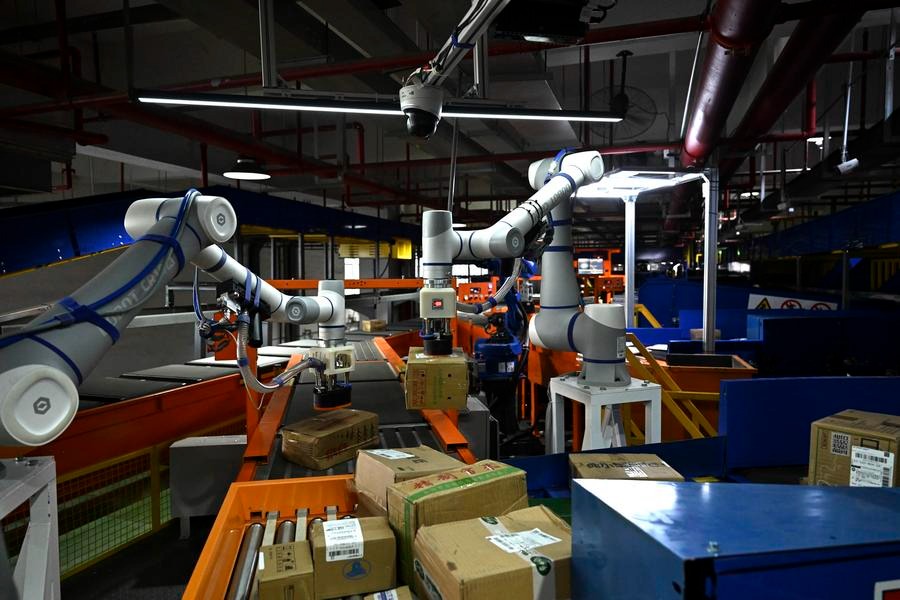Trade zone still a work in progress

It is still too early for investors and governments to start following the shanghai example
The reform blueprint issued after the recent Third Plenum of the 18th Communist Party of China Central Committee listed accelerating construction of free trade zones as one of the aims of China's next opening-up phase.
News reports also said many local governments, including those in Guangdong, Fujian, Shandong, Zhejiang, Jiangsu, Tianjin and Chongqing, had either applied, or were considering applying, to be the next place to have a free trade zone similar to the pilot one in Shanghai.
But given recent developments in the Shanghai zone, it would be wise if the government waited for a while before setting up more.
Above all, financial deregulation to be carried out in the zone is likely to widen the gap between interest rates and foreign exchange rates inside and outside the zone, creating a hotbed for arbitrage and speculation. How to deal with this remains a challenge, and it is clear this will be an arduous task, as can be seen in the case of Hong Kong. Despite the firewall between Hong Kong and the mainland, capital speculation is rampant because of the differences in rates.
So before proper methods to control arbitrage are designed and tested in Shanghai, it would not be appropriate to establish other free trade zones.
There are other problems, too.
For example, the divide among government agencies on the zone remains huge. Premier Li Keqiang and the Shanghai government are backing the Shanghai zone. But some central government agencies take a more conservative line. This split is not conducive to the development of the Shanghai zone, which requires practical support from various central departments. So it is important to dispel the doubts held by these departments and to convince them that a free trade zone will be for the long-term benefit of the country and themselves.

But before the differences are narrowed, establishing more such zones will only increase problems and disagreements. In addition, the Shanghai zone needs to make breakthroughs so that its system and spirit can be copied elsewhere. But, as the Shanghai zone is just a few months old, people are still waiting for those breakthroughs.
A major point of criticism lies in the zone's negative list, a hastily drafted category of industries and areas covering foreign investors that are banned or limited. Industries not listed are supposed to fully open to foreign investors with pre-entry national treatment.
Many observers have complained that the Shanghai list actually places more restrictions on foreign investors than a nationally adopted comprehensive catalogue of Chinese industries and whether they are open to foreign investment or not. This means that policymakers are unsure how a negative list should work so they drafted this conservative list as a trial.
Achieving breakthroughs in this regard will take at least another year, when the negative list will be updated. In this sense, the Shanghai free trade zone is just starting to test the waters by learning from international practice.
Before Shanghai develops enough valuable experience for others to follow, there is no reason to open more such zones.
It is good not to rush to jump onto the bandwagon. Besides, most local authorities do not sufficiently understand free trade zones.
One of the views commonly held by local leaders is that the zone is a policy boon instead of a reform pilot. After talking with some local officials, we have a feeling that they regard the zone as a boon for GDP growth. They think the best course of action is to initiate massive construction, either by establishing a new free trade zone or upgrading existing bonded zones. With that, economic growth will get a quick shot in the arm. They also believe the zone offers many preferential policies so that businesses will flock into it, helping to polish local GDP figures.
It is true the Shanghai zone offers deregulation and free policies, but they come at a price for local governments. The price is that local authorities will have to cut their approval and administrative rights and totally change their governing philosophy and practice in investment as well as trade. If a government does not learn to act that way, the advantage of the free trade zone cannot be brought fully into play. In that case, it will just be a duplication of a bonded area.
The authors are Shanghai-based analysts. The views do not necessarily reflect those of China Daily.
(China Daily Africa Weekly 12/06/2013 page11)
Today's Top News
- Japan unqualified for UN Security Council: Chinese envoy
- Deforestation is climate action's blind spot
- Japan unqualified for UN Security Council: Chinese envoy
- China, Germany reach outcomes after discussions
- Chinese cities dominate global science hub rankings
- Japan's tourism battered as Chinese travelers cancel trips






























